The All-NEW Plank Challenge: Sep 2020
The All-NEW Plank Challenge: Sep 2020
Our 8th annual Plank Challenge offers some new and exciting features.
Overview: Great to have you on board for the Sep 2020 Plank Challenge. Remember that this is a challenge – and that means it may vary from person to person. Empower yourself by personalizing the challenge in a way that suits you. You might consider topping out at a minute or transitioning to a more restful pose as needed.
Tips: To help in this process we have created a video (appended below the Plank Challenge calendar) that offers modifications for the plank pose. The video is followed by further tips for this challenge. And we have also offered a collage of photos for how to spice up your challenge by using blocks.
Take Your Pick: Moderate or Intensive
The chief difference this year is that there are two options: (a) moderate or (b) intensive. The first eleven days they are exactly the same, but thereafter they vary. The moderate option tops out at 2 minutes, while the intensive rises up to 5 minutes. Here we should bear in mind that in physical therapy if someone can hold the plank pose for 2 minutes they are thought to be in excellent condition. That is one of the metrics they employ for determining one’s level of fitness.
So both of the options for this month’s challenge are viable routes for gaining strength and enhancing muscle tone. And, naturally, you are welcome to up with your own personalized version that is some type of combo between the moderate and the intensive.
Video: Modifying Your Plank
This below video offers some ways to soften (and spice!) your practice of plank.
Use of Blocks: an extra dynamic
In the event you are looking to spice up your Plank Challenge, consider the use of some blocks – in one of more of the myriad of ways in which they can be used.
Note: click on any photo to enlarge.
—
How to Approach this Challenge
– Know Your Limit: Part of the challenge is recognizing when you’ve hit your limit. So progress slowly through the initial days of the chart and when you feel you have hit your max, stop there and remain there for a few days or maybe even the rest of the month. Or maybe at some point you incrementally build on it by 5 or 10 seconds, according to your pace. Remember, participation is the main thing – not following or matching any particular number per se.
– Select Your Pose: You may do the challenge doing (a) dolphin plank (i.e. on forearms) or (b) standard plank. You can also alternate between the two by going down to dolphin plank from plank to close out a particular day’s practice.
– Rest in Downward Dog: One way to combat fatigue is to go into downward dog for a few moments and then come back down to plank.
– Use Your Knees to Rest: Another way to combat fatigue is to let your knees rest on the ground for a moment, or try some of the modifications presented in the above video.
– Rest in Child’s Pose: You may also go into child’s pose for a spell and then come back into your plank pose.
– X-tra Challenge: If the beginning days are not challenging enough for you, then try doing it on three points, alternately keeping one leg in the air.
– Incorporate Meditation: Before or after your plank session, do sit for 1 minute of meditation.
– Overall Outlook: Be creative, forgiving, and careful as you advance through the plank challenge. Do respect your limits.
– Company: Invite family and friends to join The Plank Challenge – company is a wonderful motivator.
Great Benefits of this Pose
- Toned core
- Reduced back pain
- Flexibility: muscles around your shoulders, collarbone, and shoulder blades will expand and stretch as will your hamstrings and even the arches of your feet and your toes.
- Improved posture
- Strengthens your upper body, arms, wrist, spine
A Few Tips for Doing Plank
– Hold your elbows directly under your shoulders and place your wrists in line with your elbows.
– Push your body up into your upper back and keep your cervical spine in a neutral position.
– Brace / contract your abdominals, squeeze your gluteal (tailbone) and thigh muscles simultaneously while continuing to breathe normally.


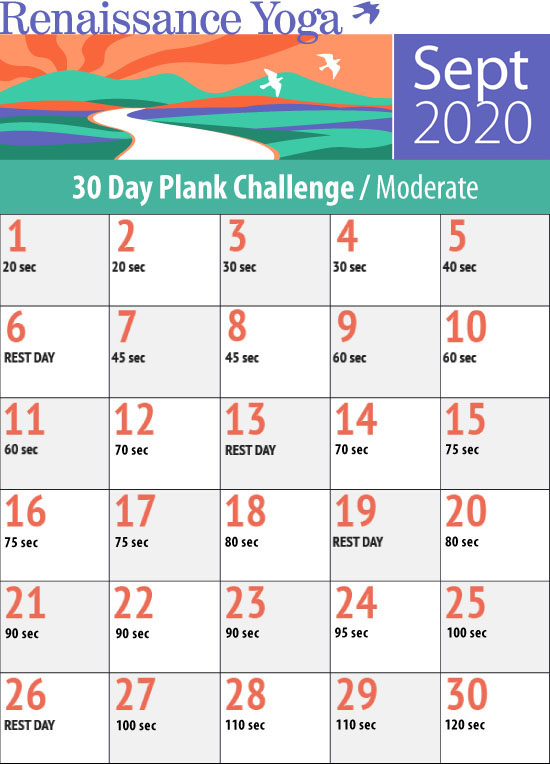
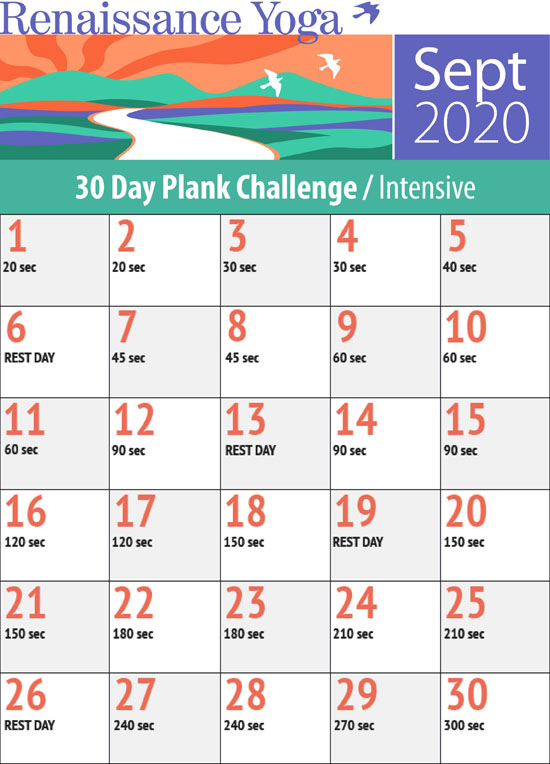
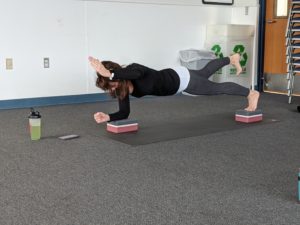
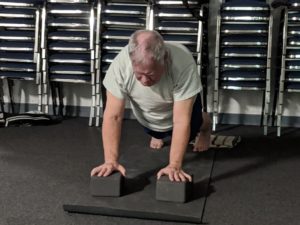
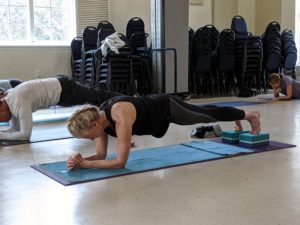
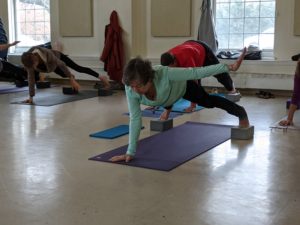
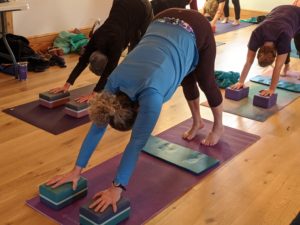
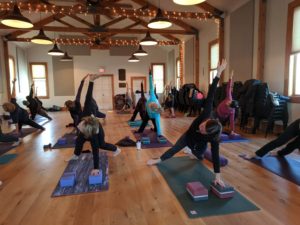
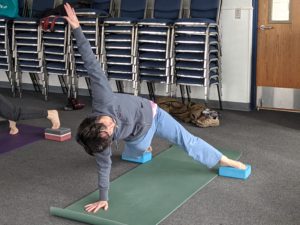
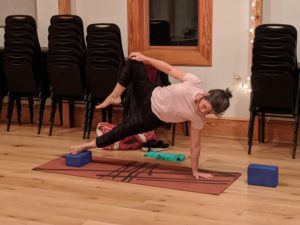
I started the Plank Challenge 2020 a day early!
Way to go Reza!! I like your spirit – the rest of us are a step behind!!
I like this challenge, will take it up. Might solve my belly fat problems.
Wonderful – great to have you on board!!!
Yesterday Amelia and Sophia did two minutes of plank and Dolphin plank to conclude the challenge!
Wow!!
That is extremely IMPRESSIVE!!
Very well done Amelia & Sophia!!
💪👏👍🙏
Another very effective yoga which helps to lose arm-fat and getting a toned body. Really beneficial post for people with belly-fat problems.